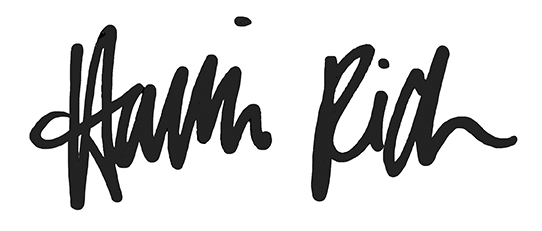The Power of the Reader | Editorial
When the LJ team decided to focus our June issue on censorship, I couldn’t get the idea of exploring the personal nature of book bans out of my head. Yes, the broad societal impacts of affronts to intellectual freedom are significant—but what do they look like and mean for individual readers?
Censorship cuts choice and shames what we choose
 I CONSIDER reading to be a highly personal activity. Selecting a book that you want or feel like you need to read often depends on some unique combination of your mood, what’s available, and what you find interesting. To take words on a page and roll them around in your head to create meaning with no intermediary—just you, the words, and the ideas and feelings they conjure—is personal and powerful.
I CONSIDER reading to be a highly personal activity. Selecting a book that you want or feel like you need to read often depends on some unique combination of your mood, what’s available, and what you find interesting. To take words on a page and roll them around in your head to create meaning with no intermediary—just you, the words, and the ideas and feelings they conjure—is personal and powerful.
When the LJ team decided to focus our June issue on censorship, I couldn’t get the idea of exploring the personal nature of book bans out of my head. Yes, the broad societal impacts of affronts to intellectual freedom are significant—but what do they look like and mean for individual readers?
So we invited a handful of partners connected to libraries to share their personal stories and perspectives on censorship. Their essays (“Hard Victory for Equity,” by Brooky Parks; “Sharpening My Resolve,” by Amandeep Kochar; “The Making of an Advocate,” by Skip Dye; and “Renewing Our Commitment,” by Dr. Carla Hayden) reveal the many ways that reading can shape who we are in one moment and who we might become in another. They also provide insight into how readers from different vantage points—publisher, vendor, librarians, and authors—see the issue.
When I spoke with authors Hanif Abdurraqib and Jacqueline Woodson about censorship, we ended up talking mostly about the personal toll that book challenges take on writers, readers, and librarians. I was struck by the way Hanif connected censorship with shame. Demonizing certain books as off-limits or unworthy of exploration—something “bad” that needs to be taken away—sends a message to the readers who seek out those books that can cut deeper than physically removing books from the shelves.
I found myself thinking a lot about reading and shame recently when my son came home from school with a message from his librarian. He’d checked out a book in Dav Pilkey’s “Dog Man” series, and we spent a week reading and rereading the parts that made him giggle—farts, Flip-o-Rama pages, and Grampa, the criminal cat, are undeniably funny to a seven-year-old boy. When it was time to return the book, he said he wasn’t allowed to check out another “Dog Man” because his librarian wanted the kids to read something else, something that wasn’t so silly.
The book wasn’t “banned” in the way that we think about the term, but the message was clear to him: Some books are good to read, and some books are not. He was too embarrassed to let me write a note saying he had my permission to check out any title he wanted.
In libraries we talk a lot about books as “windows,” helping us see into experiences different from our own, and “mirrors” reflecting who we are. But it’s also true that books are escape hatches into adventures we crave, cozy blankets that provide comfort, and fun rides that delight our senses. There are as many valid reasons to read a book as there are books to be read. And it’s up to the reader to choose.
Censorship is a blunt tool that eliminates personal choice. And it’s also a quieter, more insidious voice that whispers, “Are you sure you should be reading this?” and “Why do you want to know about that?” and “What’s wrong with you?” It eats away at individual agency, making you question your choices and, in effect, your power. That power, Librarian of Congress Dr. Carla Hayden reminds us in her essay, has been so feared by oppressors throughout history that they have denied enslaved people even the right to learn how to read.
As authors, Hanif and Jackie said that they don’t really think about the reader when writing—the work is about their personal expression, their engagement with words on a page. What the reader does with their words is, quite frankly, the reader’s business.
Some years from now, when he’s ready, I will encourage my son to read my favorite Toni Morrison novel, Jazz, so that he will hopefully take away one of its key lessons: Power rests in the hands of the reader. In the final pages of the book, Morrison’s narrator speaks directly to her reader, making clear who literally holds the power, “If I were able I’d say it. Say make me, remake me. You are free to do it and I am free to let you because look, look. Look where your hands are. Now.”


Add Comment :-
RELATED
ALREADY A SUBSCRIBER? LOG IN
We are currently offering this content for free. Sign up now to activate your personal profile, where you can save articles for future viewing








